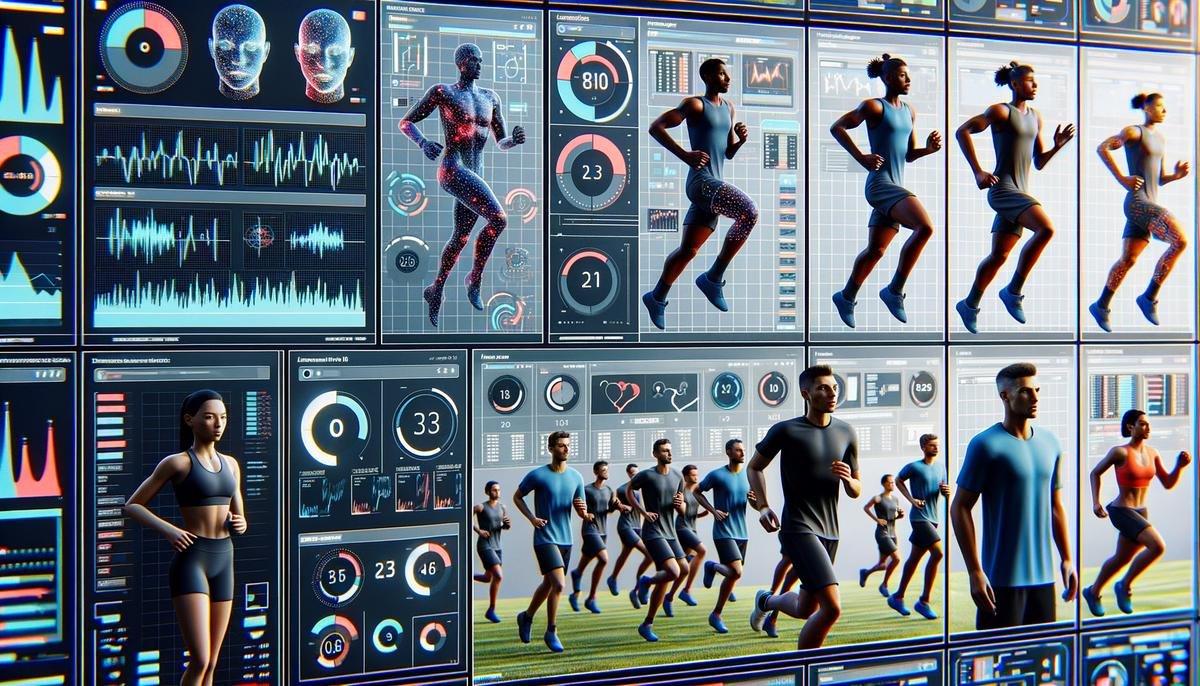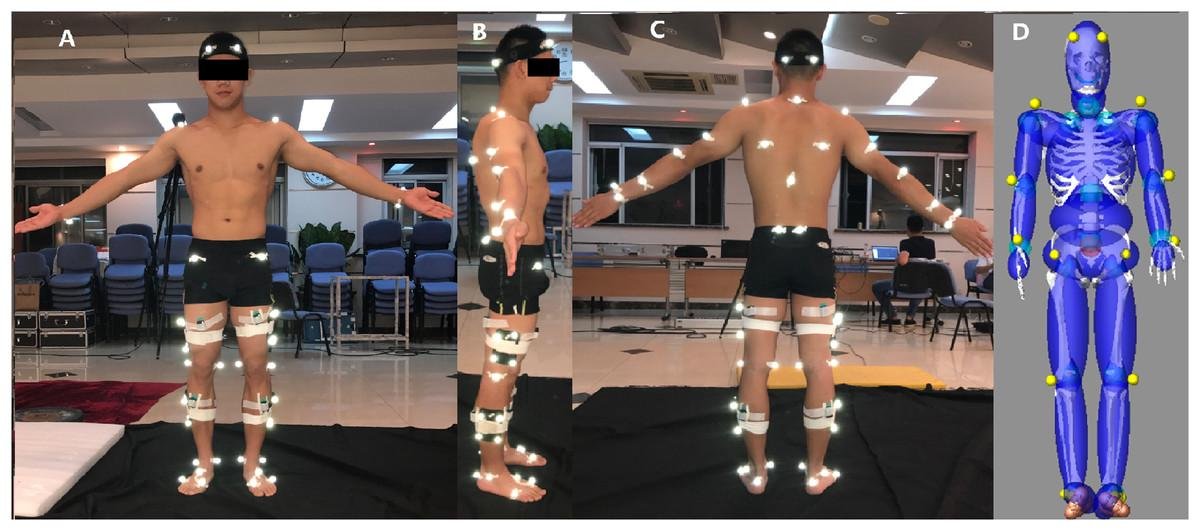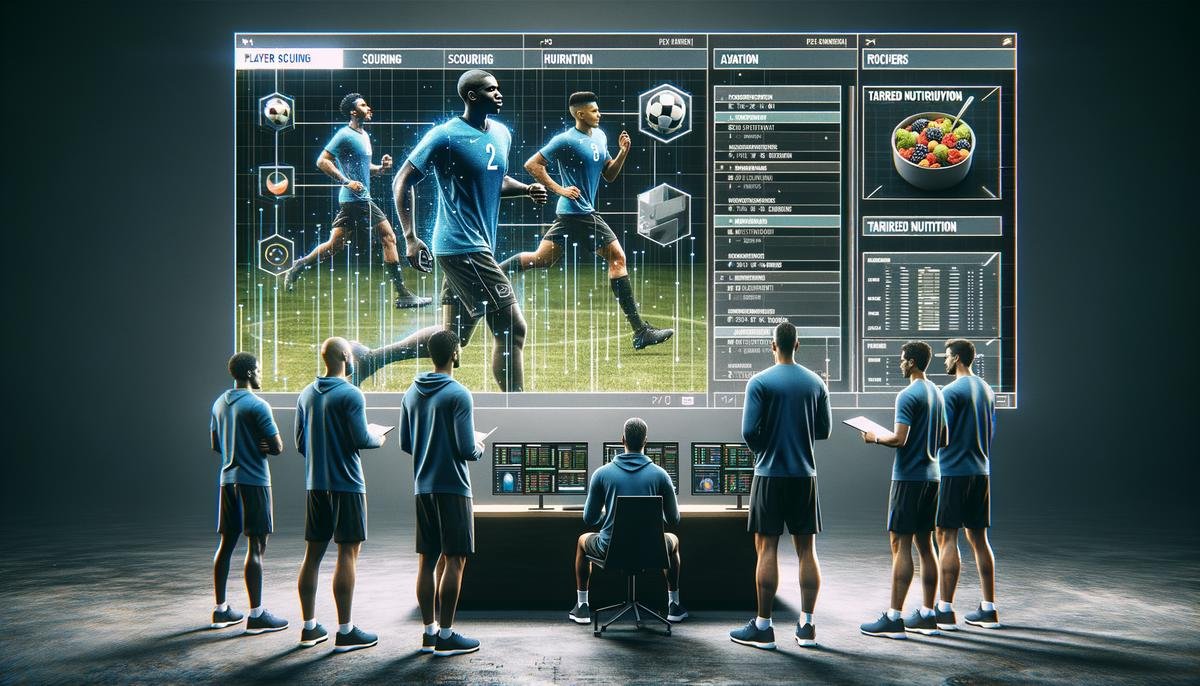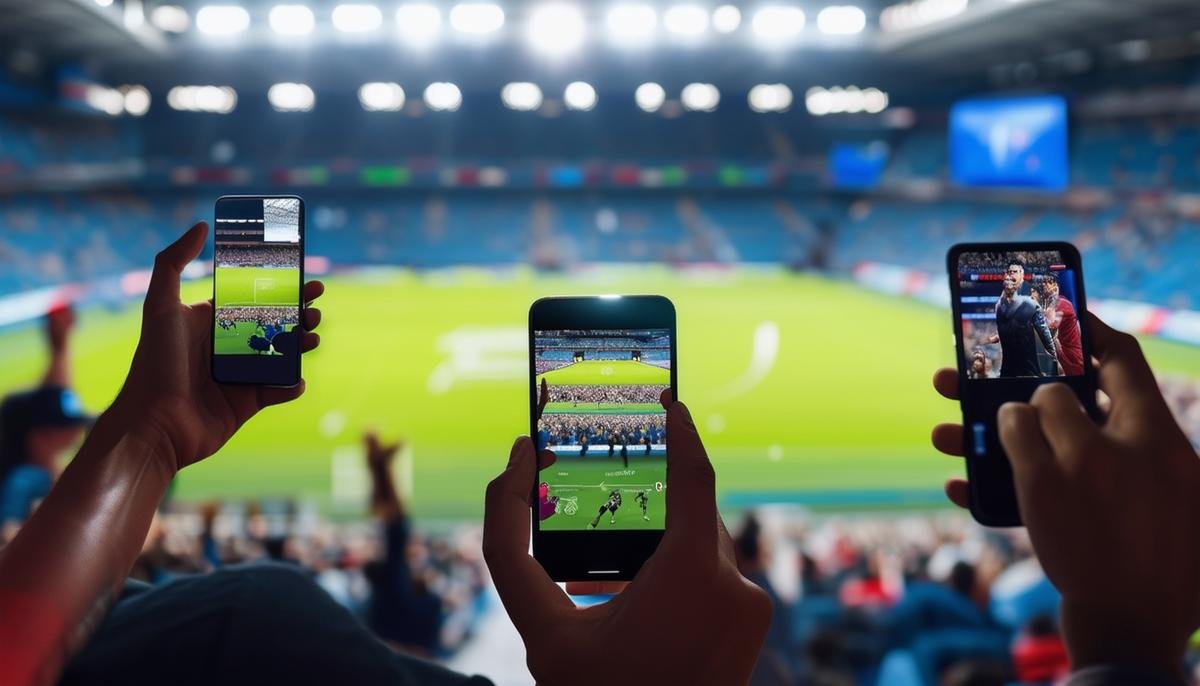Artificial Intelligence (AI) is reshaping the landscape of sports, from enhancing player performance to optimizing fan engagement. By harnessing advanced algorithms and real-time data, AI offers unprecedented insights and precision across various aspects of sports management and strategy.
Predictive Analytics for Player Performance and Injury Prevention
AI leverages advanced algorithms and machine learning to forecast player performance and assess injury risks. In the NBA, wearable technology equipped with AI capabilities tracks players’ movements during games and practices. This real-time data is used to:
- Predict performance levels
- Adjust training loads
- Personalize recovery strategies
AI processes large amounts of data from various sources to provide insights on players’ speed, acceleration, and fatigue levels. Coaches can adapt game strategies based on this real-time feedback, enhancing team performance. Customized training programs are designed for individual players’ needs.
Predictive analytics also play a crucial role in injury prevention. By analyzing historical data and identifying patterns, AI can detect early warning signs of potential injuries. This allows medical teams to intervene proactively, reducing downtime and promoting faster recovery.
The Olympics have seen similar applications, with teams employing predictive analytics to adjust training loads for athletes, leading to reductions in shoulder injuries for swimmers1. Soccer clubs use AI to analyze match footage, providing detailed performance metrics for players. This data enables coaches to make informed decisions on player substitutions and tactical adjustments.

Real-Time Monitoring of Athlete Biometrics
Real-time monitoring of athlete biometrics has become essential in optimizing performance. Utilizing AI, coaches, medical staff, and athletes have access to crucial physiological data, enabling immediate adjustments that can enhance performance and minimize injury risks.
In soccer, wearable technologies track:
- Heart rate
- Oxygen consumption
- Core body temperature
This data helps identify when an athlete is nearing fatigue, signaling the need for strategic substitutions or adjustments to training intensity.
AI generates personalized training regimens adapted to each athlete’s unique physiological profile. In basketball, tracking technologies monitor the biomechanics of an athlete’s jumps and sprints, providing insights that help refine techniques and prevent lower limb injuries.
In swimming, real-time biometric data offers a view of an athlete’s performance parameters, such as stroke rate, stroke length, and heart rate variability. Coaches use this data to adjust training loads, ensuring swimmers maintain peak performance without jeopardizing their health.
AI-driven recovery protocols based on real-time data ensure that athletes receive the right interventions at the right times. Wearable sensors can monitor sleep patterns, hydration levels, and muscle soreness, enabling the design of personalized recovery plans that expedite healing and reduce downtime.

AI in Talent Scouting and Nutrition Optimization
AI is transforming talent scouting and nutrition optimization by providing tools that offer data-driven decision-making and personalized assessments. Machine learning models can analyze player statistics, workout results, and psychological profiles to forecast future performance trajectories and compatibility within different team dynamics.
In soccer, AI can analyze match footage, tracking metrics such as:
- Player movement patterns
- Speed
- Ball-handling skills
This provides scouts and coaches with a nuanced understanding of a player’s strengths and weaknesses, aiding in informed recruitment decisions.
AI also plays a pivotal role in personalizing an athlete’s diet based on their unique needs and performance goals. By integrating biometric data such as metabolic rates, calorie expenditure, and nutrient absorption, AI can create customized nutrition plans that align closely with athletic demands.
AI-driven applications can monitor an athlete’s dietary intake and analyze how specific foods impact their performance and recovery. Athletes receive detailed dietary recommendations that update based on their current training loads, recovery needs, and psychological states, ensuring they are properly fueled for peak performance.
The integration of biometric data such as sleep patterns, hydration levels, and stress indicators further refines these nutrition plans. This holistic approach ensures that every aspect of an athlete’s well-being is considered, enabling a balanced diet that supports both physical performance and overall health.

Enhancing Fan Engagement through AI
AI enhances fan engagement by offering customized experiences that cater to individual preferences and behaviors. By analyzing data, AI enables sports organizations to create personalized content, marketing campaigns, and targeted advertising that resonate with their audience.
AI can track and analyze a fan’s engagement history and use this data to suggest relevant articles, videos, and updates. This personalization ensures that fans receive content suited to their interests, increasing their engagement and loyalty to the sport.
In marketing campaigns, AI-driven insights enable sports organizations to reach fans more effectively. By segmenting audiences based on criteria such as demographics, purchase history, and online behavior, AI can craft personalized marketing messages that are more likely to resonate.
AI can deliver more relevant ads to users based on fan preferences and behaviors. This targeted approach increases the effectiveness of ad campaigns and enhances the viewer experience by reducing irrelevant advertisements.
Real-time engagement tools provide interactive ways for fans to connect with their favorite sports. AI analyzes fan sentiment and engagement across various social media channels, helping sports organizations respond swiftly to fan feedback.
AI-Powered Fan Engagement Examples:
- Wimbledon: Uses AI to provide personalized highlights and captions, enhancing the digital viewing experience2.
- LaLiga: Leverages AI to offer immersive fan experiences through its Beyond Stats software portal, integrating data-driven insights into live broadcasts.
- Arsenal’s “Robot Pires”: A chatbot that provides fans with match information, behind-the-scenes content, and player statistics in an interactive manner, keeping fans informed and engaged.

AI in Refereeing and Game Strategy Optimization
AI is transforming modern sports through improved refereeing and game strategy optimization. Technologies like Video Assistant Referee (VAR) and Hawk-Eye enhance officiating accuracy and fairness, while real-time analytics aid coaches in refining game strategies.
VAR, widely used in soccer, supports referees by evaluating:
- Offside positions
- Fouls
- Goal-line clearances
Using multiple camera angles and advanced algorithms, VAR ensures more consistent and objective decision-making, as demonstrated during the 2018 FIFA World Cup.
Hawk-Eye technology is crucial in sports like tennis and cricket, using multiple cameras to track ball trajectories with high precision. At tournaments like Wimbledon, Hawk-Eye provides indisputable graphical representations of ball locations, mitigating disputes over line calls.
AI also optimizes game strategies by delivering real-time insights. In basketball, tools like Second Spectrum’s collaboration with the NBA analyze:
- Player movements
- Shot patterns
- Defensive positions
This enables coaches to make quick tactical adjustments. Similar applications in soccer and tennis allow coaches to exploit opponent weaknesses and adapt strategies mid-game.
The integration of AI in refereeing and strategy optimization promotes higher levels of competitiveness and fairness in sports. It elevates the standard of play and enhances the spectator experience by bringing new levels of precision and responsiveness to various sports.
Automated Sports Journalism with AI
Automated sports journalism uses AI algorithms to revolutionize news article creation and distribution. This technology brings efficiency, consistency, and personalization to sports reporting.
AI systems can rapidly generate comprehensive reports by processing vast amounts of game data, ensuring timely updates for fans. Unlike human writers, AI algorithms maintain consistent quality and objectivity, enhancing the credibility of sports journalism.
Personalization is a key feature, with AI analyzing user behavior to deliver customized content that resonates with individual readers.
This increases reader satisfaction and fosters deeper connections between fans and their favorite sports.
Practical Applications:
- NBA: AI-generated reports provide detailed game summaries and statistical insights.
- Fantasy Sports: Real-time updates and performance projections.
- Cricket: IBM’s Watson generates match reports and analysis based on live game data.
- Soccer (EPL): AI algorithms produce match previews, post-match analysis, and player interviews.
- Video Highlights: Technologies like WSC Sports identify and compile significant game moments.
The rise of automated sports journalism marks a shift in sports news creation and distribution. As AI technology advances, it will continue to play an important role in shaping the future of sports media.
Conclusion
AI’s integration into sports signifies a new era of precision and data-driven decision-making. From refining player performance to preventing injuries and engaging fans, AI is setting new standards for excellence and efficiency in the sports industry.
The impact of AI in sports is far-reaching, transforming:
- Athlete training and performance optimization
- Injury prevention and rehabilitation
- Fan engagement and experience
- Refereeing and game strategy
- Sports journalism and content creation
As AI continues to evolve, we can expect even more innovative applications that will further revolutionize the world of sports, benefiting athletes, coaches, fans, and the industry as a whole.




